Politics and Athletic Development? – Jim Kielbaso
This election season has really gotten me to think about things in a way that relates to athletic development and the business of strength & conditioning. Now, before you get upset thinking I’m gonna talk about politics, I’m not! Instead, I’ve noticed that the
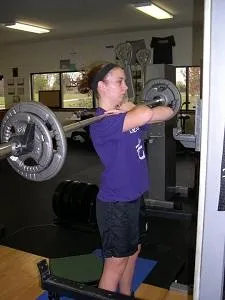
way we consume politics is very similar to the way we consume information about strength and conditioning, and it’s probably not the best way for us to make decisions.
In my opinion, one of the most important traits we can have is the ability to keep an open mind, research facts, and not get swept up in feelings, half-truths, and people saying whatever they feel like.
I’m talking about strength and conditioning right now, not politics!
I’m talking about understanding complex training concepts and knowing the facts.
But, the only way you’re going to know the facts is by digging deep and finding out what actually works, not what people SAY works or what you FEEL works.
A lot of people make programming decisions based on things like “well, so and so said this” or “I’m doing this program because this other coach or sports figure does it” or “I really think this looks cool.” I also hear A LOT of people say things like “in my experience….” Well, experience certainly matters, but if you haven’t been in coaching for years, trusting your limited experience could be a mistake. You may want to count on the experiences of people who have been doing it for 20, 30, 40 years.
And, saying you read something doesn’t automatically make it a fact. If you read it in a magazine, on a blog, or on Twitter, that is NOT the same as reading it in a scientific journal, taking a course, or learning from a coach who has been in the trenches for 20 years. These are big differences and the election cycle kind of got me thinking about this because I’m noticing a lot of people also making both their political AND training decisions based on small bits of information without getting more details.
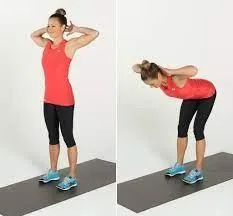
We see something on Instagram from someone with a bunch of followers, and we instantly think it must be the truth instead of digging deeper, doing our own research and getting the whole story.
So, whether it’s politics or strength & conditioning, it’s important to get the whole story before you make a decision.
I think we need to think about foundational
concepts and ignore too much hype or what “everybody else is doing.” We don’t need to pick sides and follow people blindly based on who your friends like.
Do you really decide who to vote for by seeing signs on the road? Or do you make up your mind based on facts and digging in and actually learning about what’s going on?
Are you able to sift through the garbage on the internet? In both cases, politics and strength and conditioning, we are on absolute overload with garbage.
In politics, they call it fake news. In S & C, it’s called bro-science. There’s too much out there and it’s hard to sift through it all. How can we sift through it all? We can’t. It’s impossible. But you can’t check social media and call that education. It’s not. It’s just social media where there are no fact-checkers, and there’s just too much out there to keep track of everything.
It has really become a challenge for many professionals to dive deep into a topic because we’ve gotten so used to short blips of information. Many coaches make training decisions based on a YouTube video or Instagram post. If you see something on social media, that should prompt you to dig deeper into what you’re doing, what you’re thinking about, and how you’re making your decisions. It shouldn’t be your only source of information.
Unfortunately, I don’t really have a perfect way of telling you to sift through the garbage other than explaining what I do. First, I find lots of different sources of
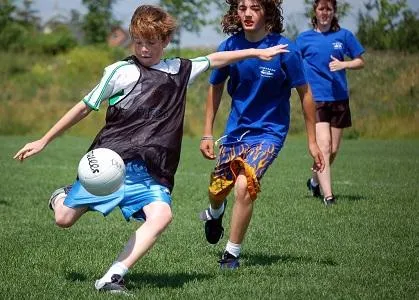
information. Of course, I use social media, but I also go to scientific journals, I take courses, I have multiple degrees, I read lots of books, I attend conferences, and I go to people who have many years of experience in the industry who put out quality information and who are in the trenches daily. These people have been doing it for years, documenting the results, analyzing their experiences and their programs, and then making decisions based on those analytics.
I try hard to determine what the actual training effect is going to be from any exercise or stimulus. You need at least a basic background in anatomy, physiology, and kinesiology to understand how the body might adapt to a particular stimulus, but this is very, very important. You also need to have an understanding of HOW MUCH of a stimulus is necessary in order to elicit an adaptation.
We also know that our nervous system can learn new skills, but if we don’t know a little about motor learning, we may not understand exactly how to get the nervous system to learn quicker.
Yes, you actually need to understand the processes involved in adaptation. Otherwise, you’ll watch a cool looking exercise on Instagram and decide to use it just because it’s new.
New might look cool, but it is not always good or useful. There may be a reason that no one has ever seen this exercise. Maybe it’s fluff.
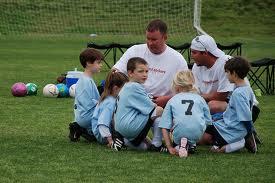
Along with the effectiveness of a training stimulus, you have to weigh the risk vs. benefit to help determine whether it’s the right choice to include in a program. For example, when I see kids standing on stability balls or doing circus tricks, I feel like the training benefit is incredibly small while the risk is fairly high. Or, I’ll see kids stacking a bunch of plates up on top of boxes to see how high they can jump. Again,
the training benefit of jumping onto a box is no greater than jumping in the air as high as you can and landing on the ground, but the risk is MUCH greater. So, I personally don’t feel like the risk outweighs the benefit.
I will also try to determine if something is economical. Basically, is this new exercise or training method worth the time an athlete will have to put into it? Does it give you a good “bang for the buck” or is the potential benefit so small that it’s basically wasting time. And, every time you choose to do an exercise, you are simultaneously deciding to NOT do every other exercise in the world. So, it better be worthwhile.
Finally, I have to decide if a particular method is right for every athlete or just for certain athletes.
I like to find multiple people or sources to discuss training so I can understand several angles. I try to take in as much as I can and keep an open mind while I’m doing it.
It is okay to change your mind. It’s certainly good to question the validity of new things, but it’s also OK to learn something new and admit that you’re either wrong or didn’t know something.Mike Boyle is one of the most respected coaches in the profession, and he has changed his mind many times. In politics, it would be called a flip-flop. In training, it’s called learning and evolving….which is good!
So, I hope you can see that this wasn’t supposed to be political at all, but the way we consume politics has many parallels to the way we have been consuming training information. I think it’s time to take a step back, slow down, and dig deeper into topics.
We should have a thorough understanding of training methods before we use them with athletes. If we don’t, we are walking blindly through the forest, hoping to find a path home.
And, I think we can all agree that we can be better than anything happening in politics.
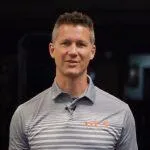
Jim Kielbaso is the President of the IYCA and owner of Impact Sports Performance in Novi, Michigan. He has authored multiple books, articles and training products and has spoken at events around the world. He holds a BS in Exercise Science, an MS in Kinesiology and has gone through multiple certifications through the IYCA, NSCA, NASM and more. Jim is a former college strength & conditioning coach and has trained thousands of athletes at every level of
Competition. He runs a successful
NFL Combine training program in Michigan
and has been hired as a consultant for major sports programs like the University of Michigan Football Program and the University of Kentucky Basketball Program.
The IYCA High School Strength & Conditioning Specialist is the only certification created specifically for coaches training high school athletes. The course includes several hours of video instruction (including a complete Olympic lifting instructor course) and two textbooks with contributions from some of the top strength and conditioning coaches in America. Click on the image below to learn more about how to become a certified high school strength & conditioning coach.
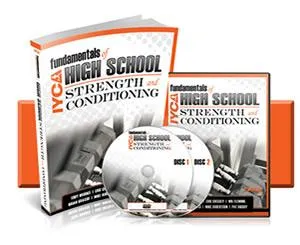
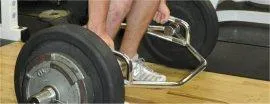
High School Strength Coach Certification
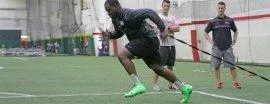
Certified Speed & Agility Specialist
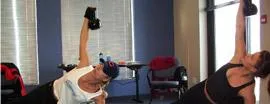
Kettlebell Instructor Course
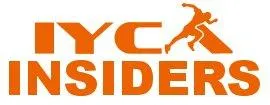
IYCA Insiders - Exclusive Access

Youth Fitness Specialist Certification
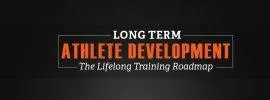
Long Term Athlete Development

Youth Nutrition Specialist Certification

Copyright © 2008 - 2025 International Youth Coaching Association. All Rights Reserved
|
|

